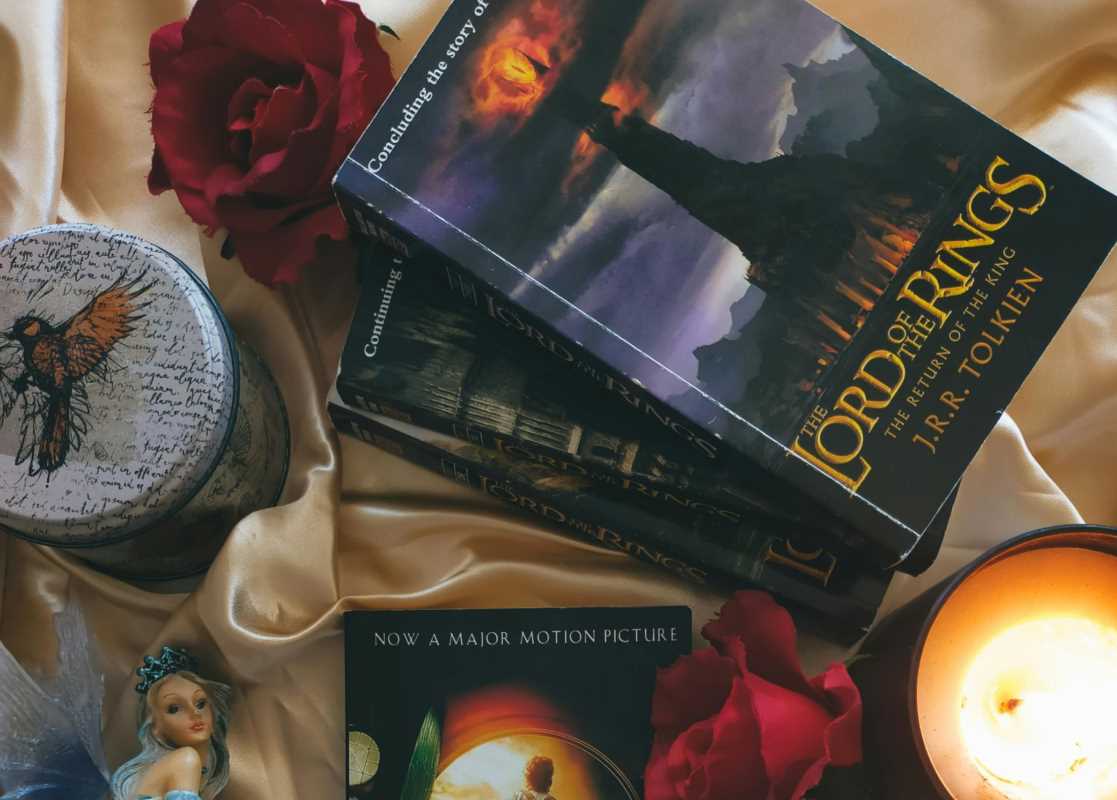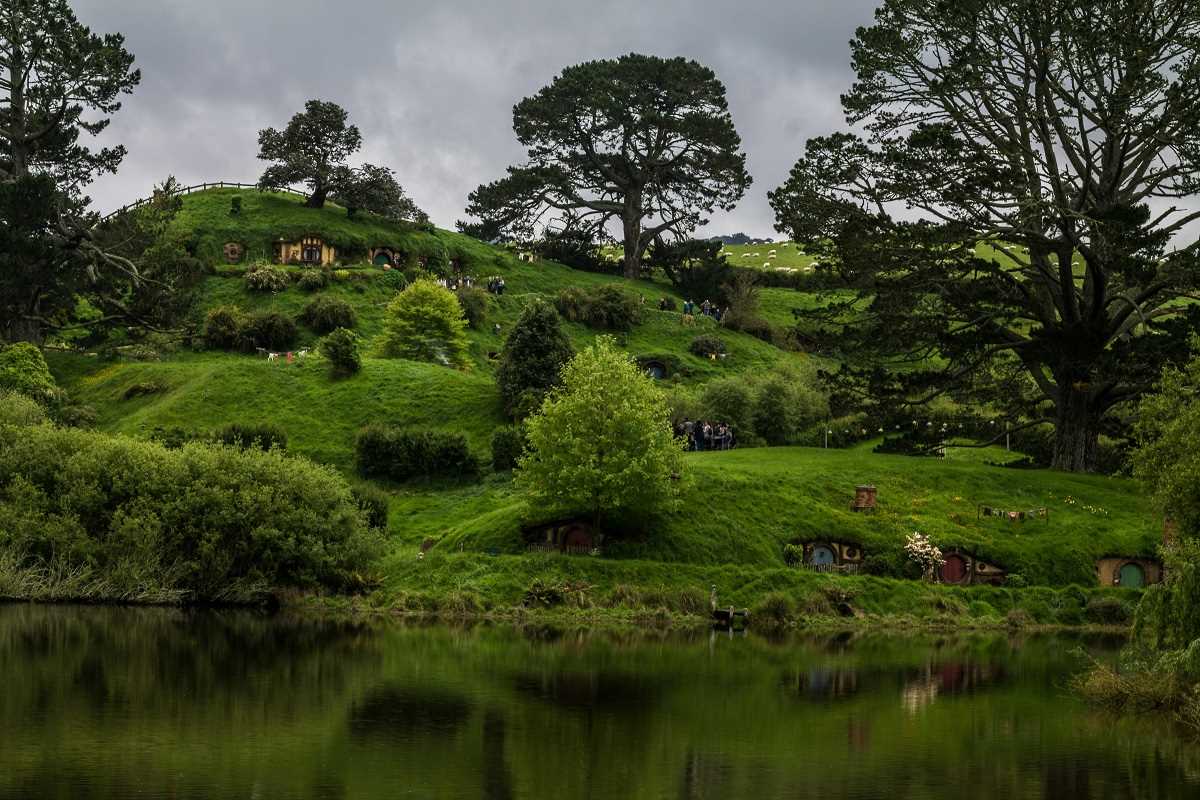There’s something uniquely comforting about revisiting a classic. These are the stories that withstand the test of time, resonating with readers across generations, and offering something new every time we pick them up. Whether you’re a seasoned reader or someone dipping back into beloved books for the first time in years, these 10 timeless literary treasures are always worth another read. Let's journey through some unforgettable tales that continue to captivate and inspire.
1. The Lord of the Rings by J.R.R. Tolkien
Genre: Fantasy
J.R.R. Tolkien’s epic fantasy trilogy (The Fellowship of the Ring, The Two Towers, The Return of the King) is a masterpiece of storytelling, world-building, and imagination. Set in Middle-earth, the tale follows Frodo Baggins and his companions as they undertake the perilous task of destroying the One Ring, a source of immense power and corruption. Along the way, we encounter incredible characters, from the loyal Sam to the enigmatic Aragorn and the tragic Gollum.
Tolkien’s meticulous detail and epic themes of friendship, courage, and the battle between good and evil ensure that The Lord of the Rings remains one of the most influential works in literature. Beyond its immersive world, its central messages about hope and perseverance resonate just as powerfully today.
2. Pride and Prejudice by Jane Austen
Genre: Romance
Few novels encapsulate wit, charm, and social insight like Jane Austen’s Pride and Prejudice. The timeless love story of Elizabeth Bennet and Mr. Darcy is much more than a romance. It’s a sharp critique of societal expectations, class, and gender roles in 19th-century England.
The vivid characters and Austen's knack for capturing human nature make Pride and Prejudice endlessly relatable. Elizabeth’s independent spirit continues to inspire, and Mr. Darcy’s evolution from aloof to irresistible reminds us that first impressions aren’t always everything.
3. To Kill a Mockingbird by Harper Lee
Genre: Coming-of-Age Fiction
Set in the racially segregated South during the 1930s, Harper Lee’s novel explores big themes like justice, morality, and empathy through the eyes of Scout Finch, a young girl. Her father, Atticus Finch, serves as a moral compass as he defends a Black man wrongly accused of a crime.
Lee’s examination of prejudice and humanity continues to be profoundly relevant. Scout’s narrative voice is both charming and enlightening, making the story accessible while addressing vital, complex issues. Atticus remains a symbol of integrity and courage in the face of systemic injustice.
4. 1984 by George Orwell
Genre: Dystopian Fiction
Orwell’s 1984 is a chilling vision of a totalitarian future where free thought is forbidden, surveillance is pervasive, and truth itself is manipulated. The story follows Winston Smith, a man desperately trying to resist the oppressive regime of Big Brother.
This dark and thought-provoking novel remains a cautionary tale, resonating in modern discussions about technology, privacy, and authoritarianism. Its exploration of control and freedom makes us question how far society should go in the name of progress or security.
5. Jane Eyre by Charlotte Brontë
Genre: Gothic Romance
Charlotte Brontë’s Jane Eyre is the story of an orphaned governess who endures hardship but refuses to compromise her sense of justice and self-worth. Her tumultuous relationship with the enigmatic Mr. Rochester unfolds against the backdrop of a brooding, atmospheric estate.
Jane Eyre’s inner strength and quest for independence continue to resonate with readers today. Brontë’s blending of romance, mystery, and feminism makes this novel a multidimensional and deeply rewarding read.
6. The Great Gatsby by F. Scott Fitzgerald
Genre: Modernist Fiction
Set in the Roaring Twenties, The Great Gatsby tells the story of Jay Gatsby, a mysterious millionaire hopelessly in love with the elusive Daisy Buchanan. Narrated by Nick Carraway, the novel explores themes of ambition, love, and the elusive American Dream.
Fitzgerald’s lyrical writing and keen observations on wealth, class, and disillusionment make The Great Gatsby feel surprisingly modern. Its portrayal of extravagant lifestyles and unfulfilled dreams strikes a universal chord that still resonates today.
7. Frankenstein by Mary Shelley
Genre: Gothic Science Fiction
Mary Shelley’s Frankenstein is more than just a tale of a mad scientist creating life. It’s a profound exploration of human ambition, ethical boundaries, and our desire for connection. Victor Frankenstein creates a creature only to reject it, leading to tragic consequences for both creator and creation alike.
Shelley’s questions about scientific responsibility and the consequences of playing God feel more relevant than ever in an age of rapid technological advancements. The Monster’s longing for acceptance and identity makes the story heartbreakingly human.
8. Little Women by Louisa May Alcott
Genre: Coming-of-Age Fiction
This heartwarming classic follows the four March sisters—Jo, Meg, Beth, and Amy—as they grow up during the hardships of the American Civil War. Their joys, struggles, and dreams make up a story filled with love, resilience, and family bonds.
Alcott’s vivid portrayal of each sister’s distinct personality and their shared familial love makes Little Women endlessly relatable. Jo March, in particular, remains an icon of independence and ambition, inspiring generations of readers.
9. Moby-Dick by Herman Melville
Genre: Adventure
At its heart, Moby-Dick is the story of Captain Ahab’s obsessive quest to hunt the great white whale that once maimed him. Narrated by Ishmael, the novel also offers philosophical reflections on life, existence, and the natural world.
Though dense, Melville’s work is endlessly rewarding for its symbolic richness and thrilling adventure. Ahab’s fixation with revenge and the idea of humanity’s struggle against nature make Moby-Dick deeply thought-provoking.
10. The Catcher in the Rye by J.D. Salinger
Genre: Coming-of-Age Fiction
Holden Caulfield’s famous New York adventure is a poignant exploration of teenage rebellion and alienation. Disillusioned with the adult world, Holden wrestles with his place in a society that seems superficial and hypocritical.
The raw honesty of Holden’s perspective continues to resonate with readers, especially young adults navigating similar feelings of confusion and dissatisfaction. It’s a reminder that growing up is messy, but it’s also universal.
Each of these classics contains layers of meaning and insight that reveal themselves differently depending on where we are in life. Revisiting them feels like catching up with an old friend, offering comfort, new perspectives, or even a challenge to our current way of thinking.






